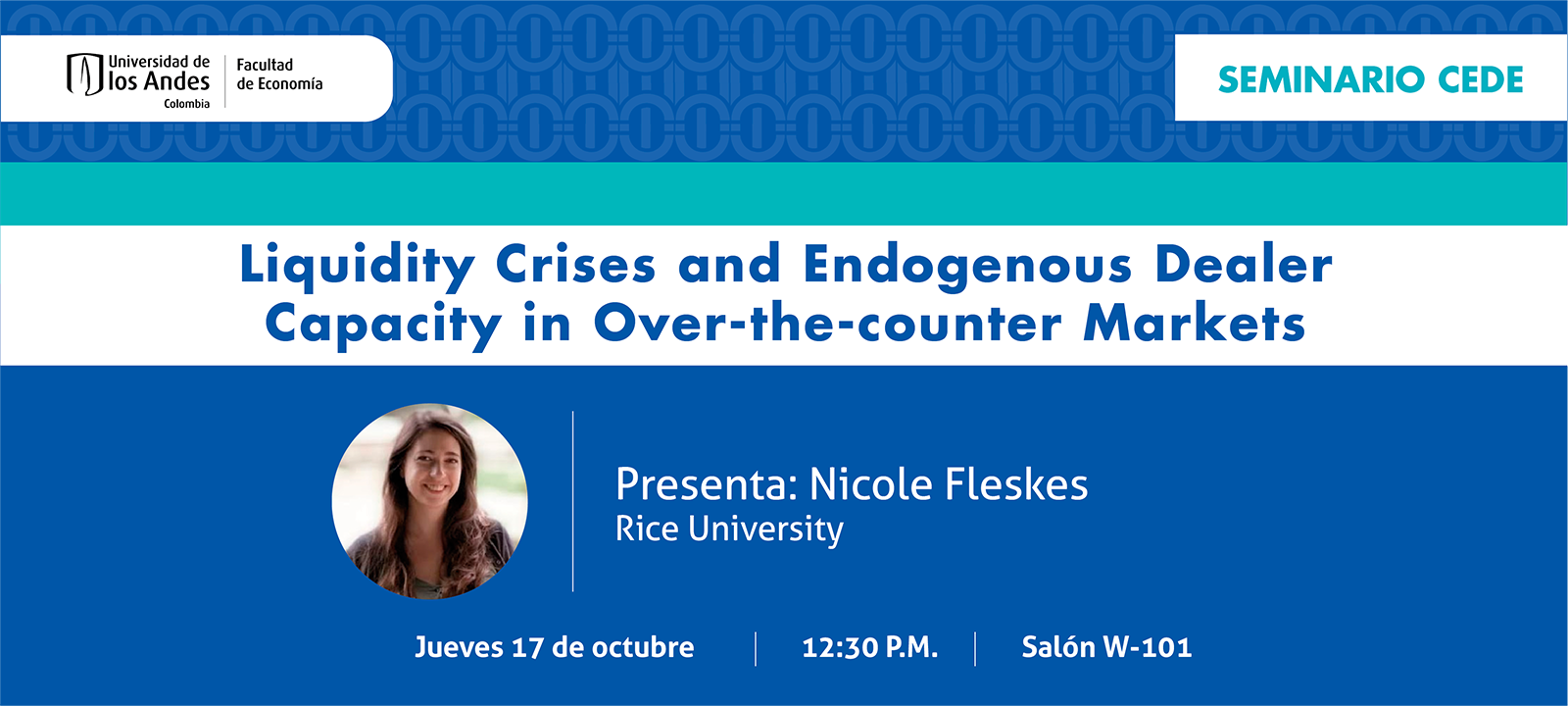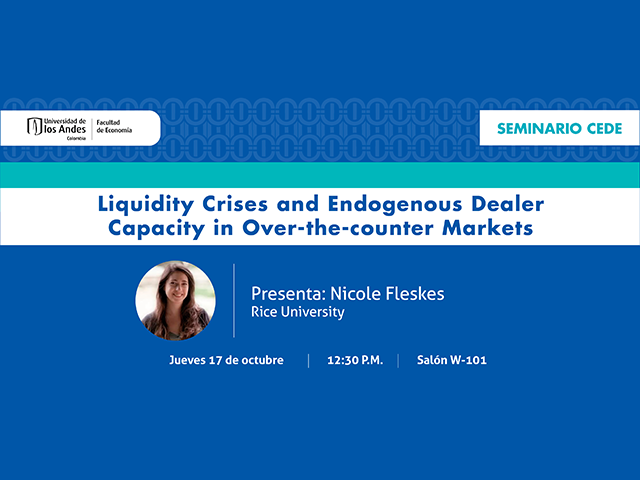Seminario CEDE - Nicole Fleskes

This paper studies how dealers provide liquidity in over-the-counter (OTC) markets during an acute crisis when they can choose their capacity: how fast they can execute orders and their inventories. I develop a search model of an OTC market in which trade between homogeneous dealers is centralized, but trade with investors is subject to search frictions proportional to dealer order execution rates. Dealers have positive bargaining power and charge intermediation fees to investors: dealers face a trade-off when choosing their capacity between their income from intermediation fees and capital gains, and the flow costs of their order execution rate and inventories. The model features a one time aggregate adverse liquidity shock to investors' private valuations. The more severe the liquidity shock, the lower the order execution rate dealers choose and the longer they wait to begin taking on inventories. Compared to a constrained planner, the existence of dealer bargaining power results in a double-sided hold-up problem that can be resolved in the steady state in a knife-edge case, but not out of the steady state following an aggregate liquidity shock. A calibration to the U.S. secondary corporate bond markets suggests that inefficiencies in dealer capacity results in larger welfare losses following a shock compared to the steady state.

